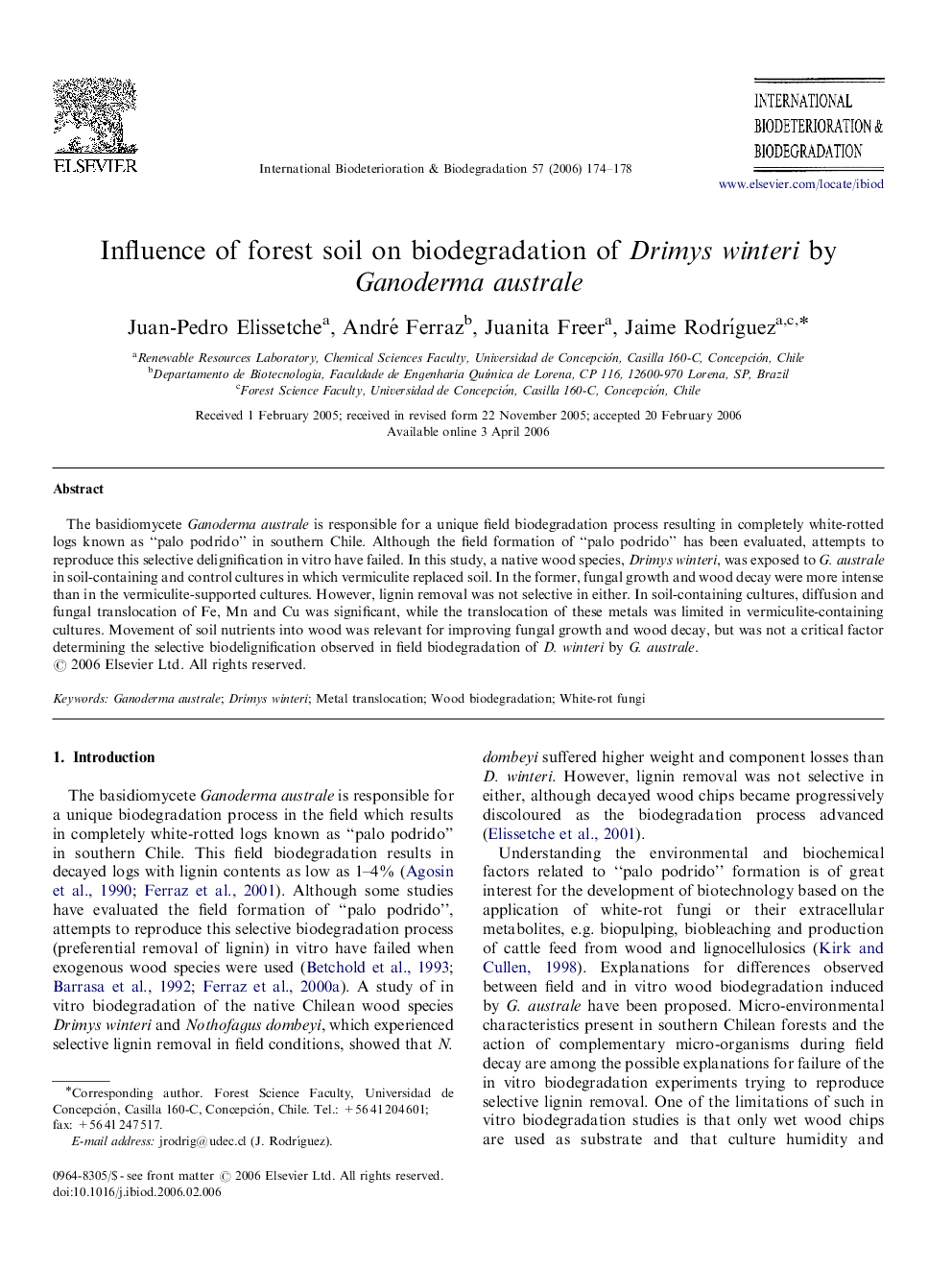| Article ID | Journal | Published Year | Pages | File Type |
|---|---|---|---|---|
| 4366091 | International Biodeterioration & Biodegradation | 2006 | 5 Pages |
The basidiomycete Ganoderma australe is responsible for a unique field biodegradation process resulting in completely white-rotted logs known as “palo podrido” in southern Chile. Although the field formation of “palo podrido” has been evaluated, attempts to reproduce this selective delignification in vitro have failed. In this study, a native wood species, Drimys winteri, was exposed to G. australe in soil-containing and control cultures in which vermiculite replaced soil. In the former, fungal growth and wood decay were more intense than in the vermiculite-supported cultures. However, lignin removal was not selective in either. In soil-containing cultures, diffusion and fungal translocation of Fe, Mn and Cu was significant, while the translocation of these metals was limited in vermiculite-containing cultures. Movement of soil nutrients into wood was relevant for improving fungal growth and wood decay, but was not a critical factor determining the selective biodelignification observed in field biodegradation of D. winteri by G. australe.
